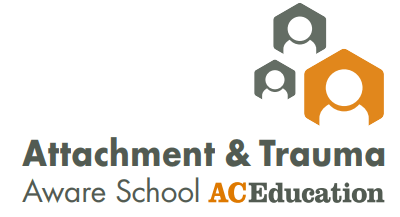Statement on preventing Extremism and Radicalisation
Statement of Intent
St Catherine’s School is fully committed to safeguarding and promoting the welfare of all its pupils. As a school we recognise that safeguarding against extremism and radicalisation is no different from safeguarding against any other vulnerability.
At St Catherine’s School all staff and Governors are expected to uphold and promote the fundamental principles of British values, including democracy, the rule of law, individual liberty and mutual respect, and tolerance of those with different faiths and beliefs.
In formulating this policy, the Governors have taken account of the guidance from the Department for Education (DfE) who has called for all public bodies to make explicit their preventative measures to minimise the threat of extremism in their setting.
Definition and Indicators
Radicalisation is defined as the act or process of making a person more radical or favouring of extreme or fundamental changes in political, economic or social conditions, institutions or habits of the mind.
Extremism is defined as the holding of extreme political or religious views.
The Governing Body has a zero tolerance approach to extremist behaviour for all community members. We rely on our British values to steer our work and ensure that the pastoral care of our pupils protects them from exposure to negative influences. Furthermore, our positive promotion of both our Code of Conduct and the upholding of our British Values provide our pupils with the skills to reject violence in all its forms.
At St Catherine’s we want to ensure that staff and Governors are
fully engaged in being vigilant about radicalisation; that they overcome professional disbelief that such issues will not happen here and ensure that we work alongside other professional bodies and agencies to ensure that our pupils are safe from harm.
Children are encouraged to adopt and live out the key “British Values” of tolerance, respect, understanding, compassion and harmonious living. Through our rich curriculum children are helped to understand the importance of democracy and freedom of speech, through PSHE ( Personal Social and Health Education), P4C ( Philosophy for Children), assemblies and through the elected School Council representatives and Rights Respecting School Ambassadors.
Children are taught how to keep themselves safe, in school , in the community and when using the internet. Our children engage in a broad, balanced curriculum that helps them appreciate and value their neighbours and friends who may not share their faith background. The children’s wellbeing, confidence and resilience are promoted through our well -planned curriculum opportunities.
They are supported in making good choices so they understand the impact and consequences of their actions on others.
Governors, teachers, teaching assistants and non‐teaching staff demonstrate an understanding of what radicalisation and extremism are and why we need to be vigilant in school.
St Catherine’s ensures that their knowledge is regularly updated in line with Government advice.
Internet-Safety
Our school will prevent the on-line manifestation of extremism and radicalisation through its robust promotion of its Internet-safety mechanisms. The curriculum network is protected. It is controlled and monitored in school and LGFL.
Any peer to peer messages communicated are consistent with the ethos of the school and do not marginalise any communities, groups or individuals.
Visitors will not be allowed to communicate to groups of pupils without the presence of a member of St Catherine’s staff being present.
It is strictly forbidden to use the school’s website, IT facilities or other elements of the information management systems or processes for the promotion, planning or execution of violent extremism in the name of ideology or belief.
The school reserves the right to exercise control over all activities on its IT facilities and networks, including the monitoring of systems and electronic communications and access to external electronic resources.
The school recognises its obligations under legislation relating to the prevention of terrorism, in particular the requirement to respond within two working days to requests from the police to remove or amend any statement published on the school hosted website that may appear to encourage or promote terrorism.
Preventing Extremism and Radicalisation Responsibilities
As part of wider safeguarding responsibilities school staff will alert to and report to the Designated Safeguarding Leader –
- Disclosures by children of their exposure to the extremist actions, views or materials of others outside of school, such as in their homes or community groups, especially where children have not actively sought these out.
- Use of extremist or ‘hate’ terms to exclude others or incite violence.
- Intolerance of difference, whether secular or religious or, in line with our equalities policy, views based on, but not exclusive to, gender, disability, homophobia, race, colour or culture.
- Attempts to impose extremist views or practices on others.
- Anti-British views.
Reporting Arrangements
The school recognises the importance of identifying and taking action to prevent or remove behaviour or activity described in this policy. All staff and other individuals connected with the school play a vital role in reporting concerns relating to the behaviour described in this policy. The procedures are based upon the principles of the school’s Whistleblowing Policy. Where children are concerned a disclosure should be treated as a child protection issue and the appropriate steps taken.
If a concern is raised suitable action will be taken in consultation with the relevant authorities both within and outside the school. If the disclosure involves the Head teacher, then the individual is required to contact the Chair of Governors.
Conclusion
The Office for Security & Counter Terrorism works to counter the threat from terrorism and their work is detailed in the counter terrorism strategy CONTEST. This strategy is based on four areas of work:
- Pursue- To stop terrorist attacks
- Prevent- To stop people becoming terrorists or supporting terrorism
- Protect -To strengthen our protection against a terrorist attack
- Prepare- To mitigate the impact of a terrorist attack
Primarily our work is concerned with PREVENTION.
This statement should be read alongside the school’s Safeguarding and Child Protection, Equal Opportunities, Internet-Safety and Anti‐bullying policies and the Governments PREVENT strategy.



